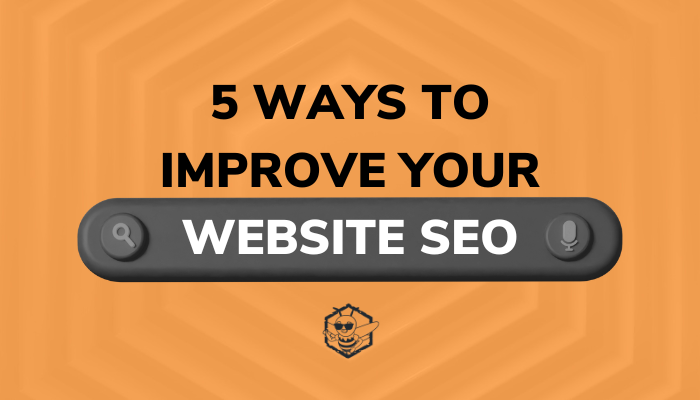Website SEO is not a "set it and forget it" marketing initiative. It's a tactic that you can and should always be analyzing and optimizing. There are several off-page SEO initiatives that you can implement to enhance your overall strategy, but let's focus on some low-hanging fruit to improve your website SEO.
1. OPTIMIZE PAGE TITLES AND METADATA
When was the last time you revisited your keywords? Has your business expanded its product offerings? Has your messaging changed? Are your competitors consistently ranking higher than you in search results? It's a good idea to revisit your targeted keywords quarterly to ensure they align with your company's goals. Once you've done that, take a look at your current page titles and meta descriptions. Do they contain your targeted keywords? Does the page align with the keyword you are currently targeting? Are your meta descriptions the proper length? Revisiting this quarterly will ensure your website is completely optimized and you are serving Google with the most up-to-date, relevant information.
2. Refresh your blog content
Your blog is one of the absolute best ways to increase organic search traffic, educate visitors, and turn those visitors into high-quality leads. Along with continuously creating new blog content, you should also be refreshing old content. But, where do you start? Take a look at your blog traffic analytics. Start with posts that used to get a lot of traffic but are now declining in views. I would suggest doing this quarterly as well, and starting with 5-10 posts that you select to optimize. How do you refresh and optimize old blog posts?
- Look at other blog posts that are covering the same topic that are outranking you. What are they covering that you're not?
- Is your blog post's targeted keyword still relevant? Is there a better keyword you should be targeting?
- Does your current call-to-action in the post still align with the content? Have you created any new content assets that would be better aligned and improve conversion rates?
- Is the format of the post in line with the search intent? Could it be optimized in terms of a list, video content, instructions, etc.?
- Check your linking structure. Make sure your post includes both internal and external links. Has there been any new content created both internally and externally that would be a better fit?
3. Create new content
As stated above, it's important to continuously create new content, and one of the easiest, most effective ways to do this is blogging. Going back to your keyword research, are there any low-competition keywords that you could target to start ranking for? Are there some keywords that are on the cusp of page one but need a little boost? New blog posts targeting these keywords will help to increase rankings. It's also important to make sure you are blogging on a consistent basis. Google loves this. Check out this post from Neil Patel that will give you a good idea on how often to blog and what cadence will work best for your business.
4. Optimize your linking structure
Internal links are links that point to other pages on your website. Internal links can help build authority on other pages. Look for pages on your site that need a boost, and use pages that already have high authority to point to pages that need a boost. Another key part of this strategy is to make sure you are being specific in your description of the link. So instead of just saying, "click here for more information," you should specify what you are linking to, such as "here is a post for more information about internal linking."
5. Decrease load times
Page speed is a Google ranking factor, so it's incredibly important that you are doing everything you can for your site to have good page speed. A slow-loading website can have a significant impact on bounce rates, and that inherently tells Google your content is not relevant to the user's search intent, and therefore, that will signal to Google to show your content less and less. This task will likely have to involve a web developer, so if you don't have one in-house, this could be a great initiative to bring up to your inbound marketing agency and ask them to help with page speed.



.png?width=100&height=100&name=HubSpot%20for%20K%E2%80%9312%20Education%20How%20Schools%20Use%20HubSpot%20to%20Improve%20Enrollment%20(and%20How%20to%20Set%20It%20Up).png)
.png?width=100&height=100&name=The%20Complete%20Guide%20to%20HubSpots%20Prospecting%20Agent%20(2025%20Edition).png)
